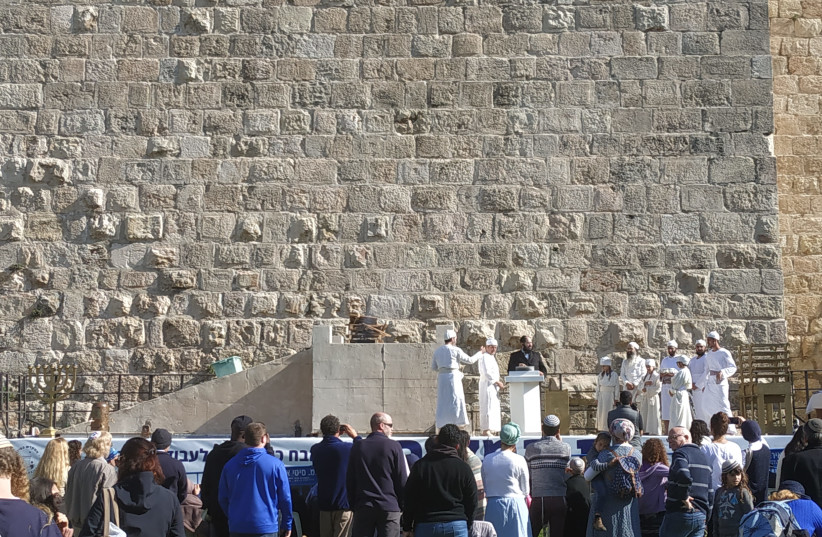This coming Shabbat, we commence the reading of the third book in the Pentateuch, the Book of Leviticus, which primarily deals with the laws of the Temple, the priests, and the sacrifices.
The first two portions in this book – Vayikra and Tzav – detail the various types of sacrifices that could and sometimes must be brought to the Temple.
The sacrifices are divided into several categories: the “olah” sacrifice, which is entirely burned on the altar; the “hatat” and “asham” sacrifices brought to atone for specific sins; the “shelamim” sacrifice, which is a celebratory offering shared by the person bringing it; and the “minha” offering, which is a plant-based sacrifice, made from wheat or barley.
Each of these sacrifices has specific and precise laws, but there are some common laws shared among all types of sacrifices. These are the following laws:
“No meal offering that you sacrifice to the Lord shall be made [out of anything] leavened. For you shall not cause to [go up in] smoke any leavening or any honey [as] a fire offering to the Lord” (Leviticus 2:11).

In this verse, two things are mentioned that are not to be brought as offerings: anything leavened, meaning grain that has risen and been baked; and honey – encompassing all types of sweet fruits.
Why can sweet, leavened things not be brought as sacrifices?
What is it about these two things, anything leavened and sweet fruits, that causes their prohibition as offerings?
Furthermore, if we were to determine the laws of sacrifices ourselves, there is a reasonable chance we would prescribe bringing specifically exquisite foods such as baked goods and sweet fruits as a means to honor God with impressive offerings made from delectable foods. Yet the Torah prohibits specifically these foods as offerings. Why?
Many of the ancient Torah commentators saw in this law a fundamental insight into humanity’s approach to the service of God.
Sacrifices are the ancient expression of man’s desire to draw close to God, to encounter Him, to feel His presence. If we translate this into our culture, the experience of sacrifice is a religious experience where man encounters something loftier than himself and touches eternity. This is the pinnacle moment of the religious experience, where man feels that he is able to give something of himself to God, and for a brief moment he feels the closeness of God and liberation from the material constraints we are subject to.
The question is how man approaches such an encounter. It is not an easy or simple encounter for man, as the experience of encountering God may cause man to feel worthless, for who is man before the perfect and almighty God? This fear may lead man to approach this encounter while being preoccupied with himself, rather than coming with honesty, purity, an open heart, and a momentary forgetfulness of ego.
Leavened bread and honey symbolize positive aspects of human life. Bread reaches its highest state when it is risen and baked; and sweet fruits represent man when he is satisfied with himself. To be content with oneself is a good state – a person is not required to live with a feeling of dissatisfaction and unfulfillment.
However, when man is content with his state, there is a risk that he will be drawn into the realms of pride and inflated self-image. “Balance” is the key word: Be content with yourself but remember that, like every person, you, too, have room for improvement. This awareness fosters humility in man.
The moment when man undergoes the sublime spiritual experience of encountering God is a pure moment. A person who arrives at this moment with an inflated ego, with excessive self-satisfaction, will miss the true essence, a preparation that can change one’s life.
Therefore, we are required to remove from sacrifices the symbols of self-satisfaction, the leavened and the sweet, so that the act of offering will not be hollow and meaningless but will influence and shape the personality in the proper way.■
The writer is rabbi of the Western Wall and holy sites.
